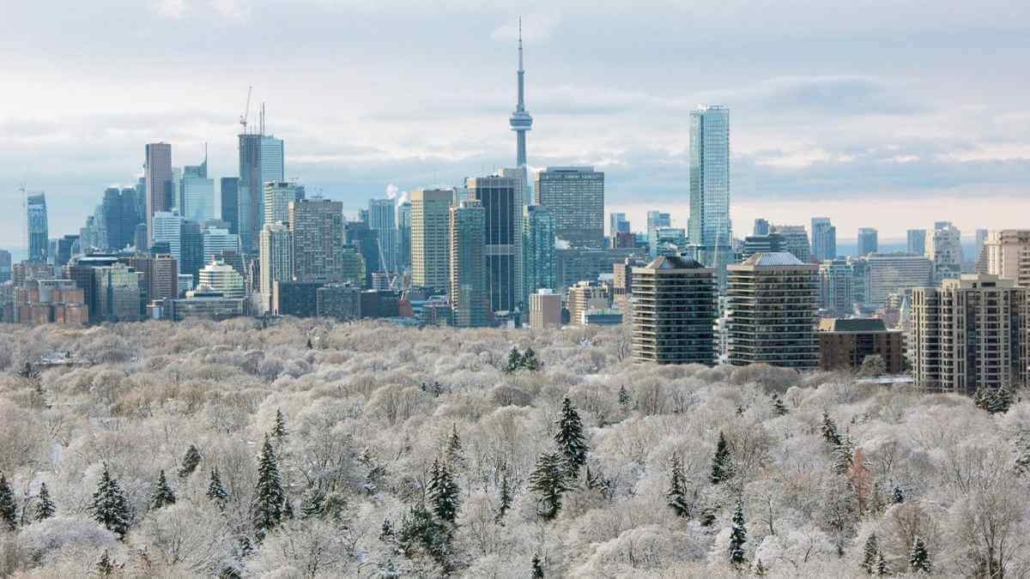Airbnb Regulations in Toronto: Navigating the New Landscape
Toronto, a vibrant and bustling city, is a hub for travelers and tourists from around the globe. Annually, Toronto welcomes millions of visitors, with recent statistics indicating a surge in tourist numbers surpassing 27 million. This influx has significantly changed the landscape of short-term rentals in the city, making understanding and adhering to the latest Airbnb regulations in Toronto crucial for hosts to operate legally and successfully.
- Top Reasons Why Airbnb in Toronto is a Great Investment
- Profitability of Airbnb in Toronto: 5 Key Insights to Be Aware Of
- Key Dates to Know While Managing an Airbnb in Toronto
- Best Airbnb management companies in Toronto
- Hosting Recommendations: A Guide to Toronto for Your Guests
- Top Toronto Neighbourhoods for Airbnb

Comprehensive Guide to Airbnb Regulations in Toronto
Navigating the complex landscape of short-term rental regulations in Toronto can be challenging. The City of Toronto’s Short-Term Rental Bylaw lays out specific guidelines that hosts must follow to legally operate their listings. This comprehensive guide breaks down these Airbnb regulations in Toronto to ensure you remain compliant and successful in your short-term rental venture.
Principal Residence Requirement for Short-Term Rentals
At the core of Toronto’s regulations is the principal residence requirement. Hosts are allowed to list their primary residences on platforms like Airbnb. This means the property must be where you live and use for official documentation such as bills, taxes, and identification. Hosting is permitted across various housing types—be it a house, apartment, or condominium—as long as it is your principal dwelling.
The Registration Process
Registration is a mandatory step for all hosts in Toronto. To register:
- Submit an Application: This is done through the City of Toronto’s official website.
- Provide Necessary Details: Including contact information, details of your rental, and an emergency contact.
- Government-issued ID: Required to prove that the property is your principal residence.
- Registration Fee: A fee of $50 is applicable, payable via credit card.
Once approved, you will receive a registration number, which must be displayed on your listing.
Special Considerations for Renters and Lessees
Renters or lessees can also register, provided the unit is their principal residence. It’s crucial to adhere to the Residential Tenancies Act and your lease agreement.
Secondary and Laneway Suites
Secondary and laneway suites can be listed if they are your principal residence. These suites must comply with zoning, Building Code, and Fire Code requirements.
Exclusions for Investment Properties and Vacation Homes
Investment properties and vacation homes do not qualify for short-term rental registration. Hosts of such properties can opt for long-term stays of 28 nights or more.
Operating a Bed and Breakfast or Hotel
Bed and breakfasts are subject to the same rules as other short-term rentals and must be registered. Hotels and motels, however, are exempt from these registration requirements.
Long-term Stays Exemption
If you exclusively host stays of 28 nights or more, registration is not required.
Post-Registration Requirements
Once registered, hosts must:
- Display their registration number on all listings.
- Provide guests with emergency contact information and 911 instructions.
- Supply an emergency exit plan.
- Maintain records of rental activity for city inspection.
- Collect and remit a 6% Municipal Accommodation Tax (MAT) on rentals shorter than 28 nights.
Annual Renewal of Registration
Your registration is valid for one year and must be renewed annually with a $50 fee.
Night Limits for Entire Home Rentals
There’s a cap of 180 nights per calendar year for entire home rentals. Private room rentals are not subject to this limit.
Data Sharing with the City
Airbnb is obligated to share certain listing information with the City of Toronto to ensure compliance with the Short-Term Rental Bylaw. This includes details like the host’s name, rental address, registration number, rental frequency, and transaction amounts.
Adhering to these regulations is essential for legally operating a short-term rental in Toronto. By understanding and complying with these rules, hosts can ensure a smooth and successful hosting experience.
Useful link: Toronto – Airbnb Help Centre.

Understanding the Legal Responsibilities of Airbnb Hosts in Toronto
As an Airbnb host in Toronto, it’s crucial to be well-versed in the legal responsibilities that come with renting out your property. These obligations are designed to ensure not only the safety and comfort of guests but also the well-being of the local community. Let’s delve into these responsibilities to provide a clear understanding for current and prospective hosts.
Adherence to Safety Compliance
Ensuring the safety of your property is paramount. This involves:
Working Smoke and Carbon Monoxide Detectors: Every rental property must be equipped with fully functional smoke and carbon monoxide detectors. This is a critical requirement to ensure the safety of guests in case of emergencies. Regular checks and maintenance of these devices are necessary to ensure they are in working order at all times.
General Safety Standards: Beyond detectors, the property should meet all local safety standards. This includes safe electrical systems, secure locks on doors and windows, and the absence of health hazards. Regular inspections and maintenance can help identify and address any potential safety issues promptly.
Respect for Neighbors
Maintaining a harmonious relationship with your neighbors is essential. This includes:
Minimizing Noise and Disturbances: As a host, you should set clear guidelines for your guests regarding noise levels and general conduct. It’s important to remind guests that they are staying in a residential area and should respect the peace of the neighborhood.
Addressing Concerns Promptly: If neighbors express concerns or complaints about your guests, it’s important to address these issues immediately and effectively. Good communication and a proactive approach can go a long way toward maintaining positive relationships with those around you.
Insurance Requirements
Obtaining the right insurance coverage is a critical legal responsibility for Airbnb hosts. This includes:
Appropriate Insurance Coverage: Standard home insurance policies may not cover activities related to short-term rentals. Therefore, it’s crucial to obtain insurance that specifically covers Airbnb hosting activities. This insurance should protect against potential liabilities, including property damage and injuries that could occur during a guest’s stay.
Understanding Policy Details: Make sure to understand the extent of your coverage and any exclusions that may apply. It’s advisable to consult with an insurance professional like MasterHost to find a policy that best suits your needs as a short-term rental host.
The Positive Impact of Short-Term Rental Regulations on Toronto’s Local Communities
In Toronto, the implementation of short-term rental regulations is not just about maintaining legal order; it’s about preserving the very fabric of the city’s local communities. These regulations play a pivotal role in safeguarding the integrity of neighborhoods, ensuring they retain their character and serve the needs of long-term residents. The impact on local communities can be seen in two significant areas:
Preservation of Affordable Housing
The heart of these regulations lies in limiting short-term rentals strictly to primary residences. This approach is a strategic move by the city to address a critical issue: the availability of affordable housing. By preventing residential properties from being transformed into unofficial hotels, these rules help ensure that more homes remain accessible and affordable for long-term residents. This is particularly crucial in a bustling metropolis like Toronto, where housing demand is high and the need for affordable living spaces is a growing concern.
By restricting short-term rentals in this manner, the city effectively curtails the practice of buying properties solely for rental purposes. This not only stabilizes rental prices but also ensures that the housing market is more accessible to those looking for a permanent place to live rather than just a temporary stay.
Enhancing Community Cohesion
Another significant impact of these regulations is the preservation of community cohesion. Neighborhoods thrive when there is a sense of stability and belonging among residents. When homes are predominantly occupied by long-term residents rather than transient guests, there is a greater opportunity for building strong neighborhood ties and a sense of community.
The restriction of short-term rentals to primary residences means that those offering their homes for short stays are also part of the community. They have a vested interest in maintaining the harmony and well-being of their neighborhood. This results in a more responsible and community-focused approach to hosting, as opposed to properties solely managed for short-term rental purposes, which can often lead to issues like noise disturbances and a lack of accountability.
Moreover, these regulations help maintain the unique character of Toronto’s diverse neighborhoods. Each area has its own identity and culture, shaped by the people who live there long-term. By preserving the residential nature of these areas, the city ensures that its neighborhoods retain their distinct charm and continue to be places where people can not only live but also thrive.
The Advantages of Adhering to Airbnb Regulations in Toronto
For Airbnb hosts in Toronto, compliance with local short-term rental regulations is not just a legal obligation but also brings a multitude of benefits. Understanding these benefits can help hosts appreciate the importance of adherence to these rules, ensuring a more successful and sustainable hosting experience.
Enhanced Guest Trust
One of the primary benefits of compliance is the trust it builds with potential guests. Guests are increasingly aware of and concerned about staying in legally compliant accommodations. Here’s how compliance builds trust:
Safety and Legality: A registered and compliant listing reassures guests that the property meets safety standards and operates within legal parameters. This assurance is crucial in a guest’s decision-making process.
Positive Reviews: Guests who feel safe and know they are staying in a compliant property are more likely to leave positive reviews, which further enhances the attractiveness of the listing.
Avoidance of Fines and Penalties
Perhaps the most immediate benefit of compliance is the avoidance of legal repercussions. Non-compliance can lead to significant consequences:
Financial Penalties: Failing to comply with regulations can result in hefty fines, which can substantially impact the profitability of hosting on platforms like Airbnb.
Listing Removal: Non-compliant listings risk being removed from the Airbnb platform, which not only affects current earnings but also the potential for future income.
Compliance with short-term rental regulations in Toronto offers hosts peace of mind, enhances guest trust, supports community well-being, and avoids legal and financial penalties. These benefits make it clear why adherence to these rules is not just a legal necessity but a smart choice for long-term success in the short-term rental market.
The Economic Influence of Airbnb on Toronto’s Economy
Airbnb’s presence in Toronto has far-reaching effects on the city’s economy, contributing significantly to various sectors. Understanding this impact highlights the importance of Airbnb in the broader economic landscape of Toronto.
Boosting Tourism Growth
Airbnb plays a pivotal role in enhancing Toronto’s tourism industry. Here’s how:
Diverse Accommodation Options: Airbnb’s inventory in Toronto is quite varied, offering everything from cozy apartments to luxurious homes. This diversity caters to different preferences, with 64% of listings being 1-bedroom accommodations, perfect for solo travelers or couples. Meanwhile, 23% are 2-bedroom, 9% are 3-bedroom, 3% are 4-bedroom, and 1% offer 5 or more bedrooms, catering to larger groups or families. Such variety makes Toronto an attractive destination for a broad range of tourists.
Attracting a Broader Audience: Beyond just the physical attributes of the listings, Airbnb appeals to diverse traveler needs. With 65% of listings being entire homes, guests looking for privacy and a full-home experience have ample choices. Conversely, 34% of listings are private rooms, which are ideal for those seeking a more intimate, local experience, often at a lower cost. A small fraction, about 1%, are shared rooms, appealing to budget travelers and backpackers. This breadth of options not only caters to different budget levels and privacy preferences but also enhances the appeal of Toronto as a travel destination to various segments of travelers, including those seeking personalized and local experiences.
Supporting Local Businesses
The presence of Airbnb in Toronto also has a ripple effect on local businesses. Here’s how it contributes:
Guest Spending in Local Establishments: Airbnb guests frequently explore local neighborhoods, dining in local restaurants, shopping in local stores, and engaging in entertainment activities. This spending injects revenue directly into the community.
Promoting Small Businesses and Artisans: Many Airbnb hosts recommend local businesses and artisans to their guests, providing these small entities with valuable exposure and patronage.
Airbnb’s influence on Toronto’s economy extends beyond just providing accommodation. It plays a crucial role in driving tourism growth and supporting local businesses, thereby contributing significantly to the city’s economic vitality.

The Future of Airbnb in Toronto
The future of Airbnb in Toronto promises to be dynamic and continually evolving. As the city adapts to changing global trends and local needs, hosts on Airbnb must stay informed and agile to navigate this shifting landscape. Here’s a closer look at what this might entail:
Adapting to Regulatory Changes: Toronto’s regulatory environment for short-term rentals is subject to change based on housing needs, community feedback, and the overall impact of these rentals on the city. Hosts must stay vigilant about new regulations or amendments to existing ones. This proactive approach ensures they remain compliant and can adapt their rental strategies accordingly.
Understanding Market Dynamics: The demand for short-term rentals in Toronto can be influenced by various factors like changes in tourism patterns, economic shifts, and even global events like pandemics or large-scale gatherings. Hosts should keep a pulse on these market dynamics to tailor their offerings. For instance, a rise in business travel or an increase in cultural events in the city might shift the types of accommodations in demand.
Embracing New Traveler Preferences: Traveler preferences are constantly evolving. Guests today seek more than just a place to stay; they look for unique experiences, sustainable living options, and localized adventures. Hosts can leverage this by offering personalized experiences, adopting eco-friendly practices, or providing insights into the local culture and hidden gems of Toronto.
Leveraging Technology and Innovation: As technology advances, there are more opportunities for hosts to enhance the guest experience. This could include smart home features for ease of access and comfort, virtual reality tours of the property or neighborhood, or using data analytics to better understand and cater to target audiences.
Community Engagement and Sustainability: The future of Airbnb in Toronto also hinges on building sustainable practices and positive community relations. Hosts who actively engage in community welfare and promote sustainable tourism are likely to find favor not just with the city but also with environmentally and socially conscious travelers.
The future of Airbnb in Toronto demands adaptability, a keen understanding of evolving trends and regulations, and a commitment to enhancing guest experiences while being mindful of the community and environment. By embracing these aspects, hosts can look forward to a thriving presence in the ever-changing world of short-term rentals.
Conclusion: Airbnb Regulations in Toronto – Navigating the New Landscape
In conclusion, this article has established a balanced and well-defined framework for short-term rentals, crucial for maintaining the city’s housing integrity and community cohesion. These Airbnb regulations in Toronto ensure that hosts operate within legal boundaries, thereby enhancing guest trust, supporting local communities, and contributing positively to Toronto’s vibrant tourism industry. As the city continues to evolve, these guidelines will remain pivotal in shaping a responsible and sustainable short-term rental environment, benefiting both residents and visitors alike.












